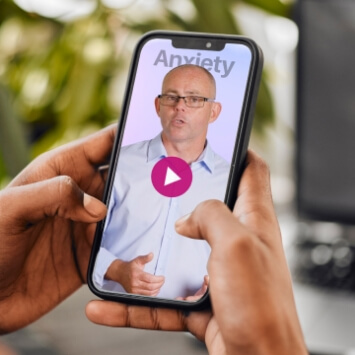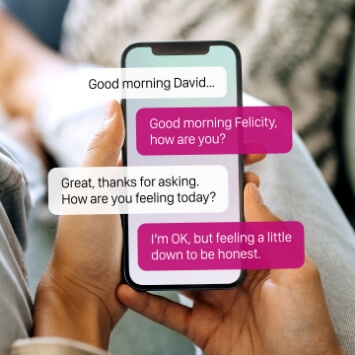Given that the roots of mindfulness are to be found in religious and spiritual practices, it’s easy to understand why someone from a secular background, or a committed atheist, might be sceptical.
There is plenty of evidence of improvements in mood and behaviour as a result of mindfulness meditation for sure. And we have already heard that levels of the stress hormone cortisol are reduced by meditation, providing evidence that stress and blood pressure are reduced through mindfulness
But there’s also scientific evidence that actual chemical and physical changes take place in the brains of those practicing meditation on a regular basis!
If we look at where the majority of activity occurs in the pre-frontal cortex of a test subject, we find that the left-to-right side ratio for activity in meditators is greater than non-meditators. We know that a higher left-to-right ratio is associated with happiness and contentment, whereas a higher right-to-left ratio tend to be found in less happy subjects or those suffering low mood or anxiety disorders including post-traumatic stress disorder.
But more startling is evidence that the physical areas of the brain responsible for attention, learning and empathy are actually enlarged through the practice of meditation. The grey matter density within those centres increases through practice and exercise in a process known as cortical thickening. It is also observed that the amygdala, a part of the brain involved in fight or flight responses and associated with stress depression and addiction, can actually shrink with continued mindful meditation.
This is due to a phenomenon known as “brain plasticity”. We can actually modify the very structure of our brains through mindfulness practice. This lecture by respected psychologist Shauna Shapiro explains some of the experimental evidence that demonstrates the changes to the brain shown in subjects that regularly meditate. In the case of the brain, just like our muscles, exercise can make specific areas larger and more effective. So, if you fancy changing your brain for the better, our mindfulness course is available here.









